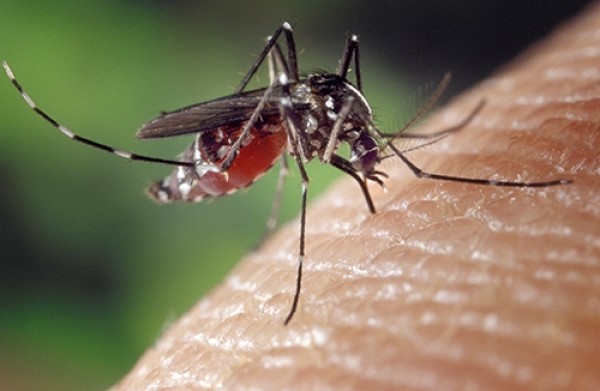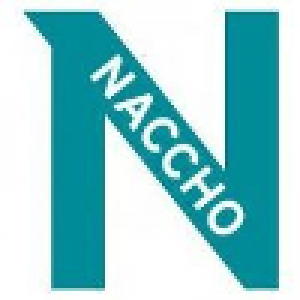Washington, D.C. — The National Association of County and City Health Officials (NACCHO), the voice of the country’s nearly 3,000 local health departments, has announced the fourth cohort of its Vector Control Collaborative Program (VCC), which strengthens local communities’ ability to detect and respond to disease threats spread by mosquitos and ticks. The program is supported by the Centers for Disease Control and Prevention’s (CDC) National Center for Emerging and Zoonotic Infectious Diseases (NCEZID) Division of Vector-Borne Diseases (DVBD).
Local vector control programs are the front line of defense against vector-borne disease threats such as West Nile, Eastern equine encephalitis, and Zika viruses. These programs fulfill an essential role in preserving the health of their communities that is underscored by the fact that disease cases from mosquito, tick, and flea bites have tripled in the United States from 2004 to 2019.[1] The VCC provides a critical opportunity for local vector control programs to share best practices in vector control and surveillance and guidance, tools, and recommendations in implementing Integrated Pest Management (IPM) and Integrated Mosquito Management (IMM) principles. The program pairs vector control programs with demonstrated expertise in the fundamental capabilities of vector control and surveillance with programs looking to build their capacity to detect and respond to vector-borne disease threats. Mentors for the 2020 cohort include members of NACCHO’s Vector Control Workgroup and previous VCC program mentors and mentees, further expanding NACCHO’s growing vector control peer-sharing network. The following are the mentor and mentee teams for the 2020 Cohort.
ARIZONAMENTEE: YUMA COUNTY PUBLIC HEALTH SERVICES DISTRICT
MENTOR: MARICOPA COUNTY DEPARTMENT OF PUBLIC HEALTH
GEORGIA/FLORIDA
MENTEE: COLUMBUS DEPARTMENT OF PUBLIC HEALTH (GA)
MENTOR: ANASTASIA MOSQUITO CONTROL DISTRICT (FL)
KANSAS
MENTEE: JOHNSON COUNTY DEPARTMENT OF HEALTH AND ENVIRONMENT
MENTOR: OKLAHOMA CITY-COUNTY HEALTH DEPARTMENT AND TULSA HEALTH DEPARTMENT
NEW YORK/VIRGINIA
MENTEE: MADISON COUNTY HEALTH DEPARTMENT (NY)
MENTOR: FAIRFAX COUNTY HEALTH DEPARTMENT (VA)
MICHIGAN
MENTEE: KENT COUNTY HEALTH DEPARTMENT
MENTOR: MIDLAND COUNTY MOSQUITO CONTROL
NORTH CAORLINA:
MENTEE: CABARRUS HEALTH ALLIANCE (NC)
MENTOR: DAVIDSON COUNTY HEALTH DEPARTMENT (NC)
OHIO
MENTEE: TUSCARAWAS COUNTY HEALTH DEPARTMENT
MENTOR: TOLEDO AREA SANITARY DISTRICT
OHIO/NEW YORK
MENTEE: FRANKLIN COUNTY PUBLIC HEALTH (OH)
MENTOR: SUFFOLK COUNTY DEPARTMENT OF HEALTH SERVICES (NY)
TEXAS
MENTEE: BROWNWOOD-BROWN COUNTY HEALTH DEPARTMENT
MENTOR: HARRIS COUNTY PUBLIC HEALTH
The vCC pairs identify priorities for the project year and receive technical assistance plans that provide supplemental skill-building resources in vector surveillance and control, and define how mentors will assist mentees’ programs in capacity building. Subject matter experts from NACCHO and CDC are also available to discuss program progress and provide additional guidance in establishing or expanding vector surveillance and control operations.
To date, NACCHO, through the VCC, has awarded over $172,000 to 28 vector control programs across eleven states to train program staff in key functions in mosquito and tick management, build jurisdictional partnerships, and expand program operations. Vector control programs that have completed the VCC have also reported the following benefits of the program:
- Adopting best practices and building practical knowledge that increase operational efficiency.
- Attending vector control and surveillance trainings and conferences.
- Establishing physical upgrades to program space and equipment to support resistance testing, education, and control efforts.
- Expanding partnerships with mentorship partner, academia, and other jurisdictional organizations.
- Gaining opportunities to shadow and learn from more advanced programs.
The newest cohort began the VCC in March 2020 and will complete the mentorship program at the end of June 2020. NACCHO will work with participants to collate and promote the lessons learned throughout the program to other vector control programs across the country.
For more information on the NACCHO Vector Control Program and the Vector Control Capabilities, visit these websites:
- NACCHO Vector Control Program Site
- A Capabilities-Based Framework for Mosquito Control Programs in the United States
- NACCHO Voice: NACCHO Vector Control Collaborative: A Cinderella Story
- Story from the Field: A River Runs Through It
[1] Centers for Disease Control and Prevention. (2018) From mosquito, tick, and flea bites. Retrieved March 26, 2020 from https://www.cdc.gov/vitalsigns/vector-borne/index.html







